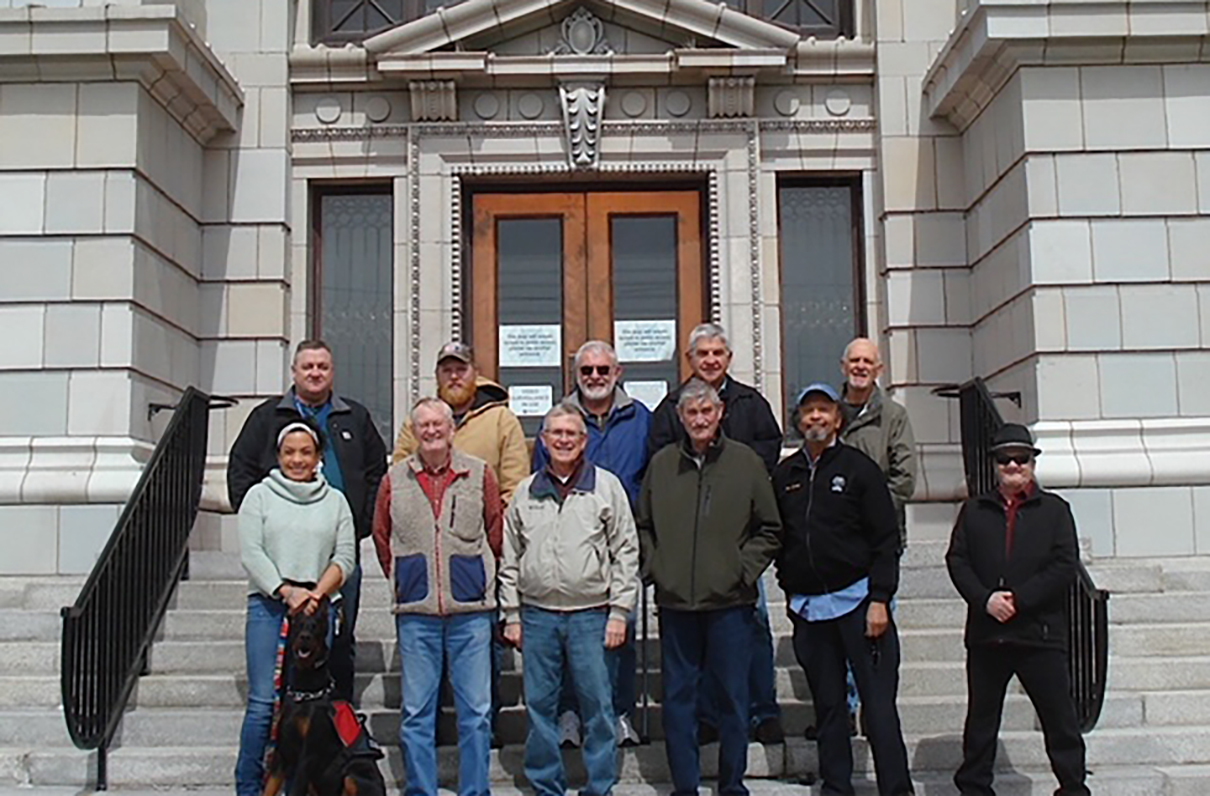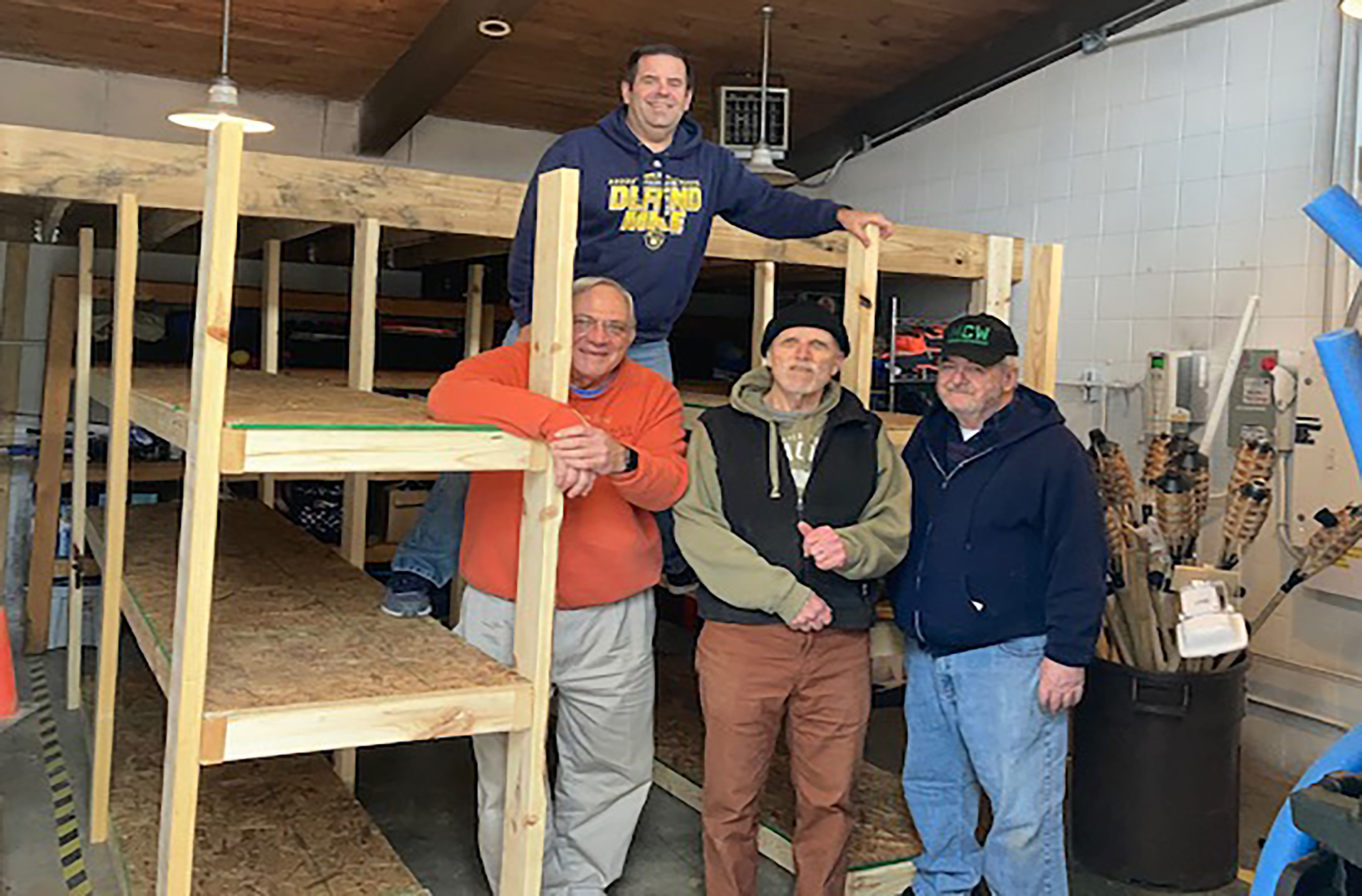By Contributing Editor Blair Drake
For more than a decade, members of the Western Montana Chapter have been supporting the Missoula Veterans Treatment Court (VTC). VTCs offer substance abuse or mental health treatment as an alternative to incarceration, with the goal of keeping nonviolent veterans with these issues out of the traditional justice system, according to the VA.
Chapter members serve as mentors to VTC participants during the 12- to 18-month program.
“As mentors, we’re a trusted friend for our mentee,” said Lt. Col. Larry Schauff, USAF (Ret), a chapter member who has served as a mentor since soon after the Missoula court’s inception in 2011. “For many of [the VTC participants], because of their problems, they aren’t in contact with their family, so we’re that trusted person. When they’re having an issue, they call their mentor and talk through what they’re going through.”
The relationship that develops between the mentor and the mentee helps the participant address the challenges of complying with the requirements of the court, including attending recovery programs, finding housing and employment and dealing with a multitude of bureaucracies.
[RELATED: MOAA Changemakers — Col. DJ Reyes, USA (Ret), Assists Veterans Struggling With Substance Abuse]
Mentors meet with their mentee at least once a week, including attending weekly meetings in the courtroom. In most incidences, Schauff said, mentors also make some additional contact with their mentee, whether a phone call, accompanying them to appointments, grabbing coffee together, or even going fishing. Mentors also must attend eight hours of training once a year as well as one-hour monthly meetings.
The Missoula VTC program has proven successful, with over 100 veterans graduating since its start.
When [the participants] graduate and give their speeches … with all the mentors and mentees there, it almost brings tears to hear them speak,” Schauff said.
Schauff’s most recent mentee, who served with the 82nd Airborne Division during Operation Desert Storm and Desert Shield, graduated from the VTC and now volunteers as a program mentor. “The participants who graduate and go on to become mentors … bring a different perspective,” Schauff pointed out.
For Schauff, he said his experience as a mentor has been “very worthwhile,” and he encourages more veterans to volunteer their time with VTC mentor programs.
“We’re all veterans, and the people we’re trying to take care of are veterans … but they need a helping hand to get them through bad times,” he said. “If you enjoyed the military, if you enjoyed the closeness of the military, then I encourage you to consider volunteering.”
Blair Drake is a contributing editor for MOAA and lives in Souderton, Pa. She previously served on the editorial team of Military Officer magazine for nine years.
Want to Help Servicemembers in Your Community?
Learn how you can make a difference with your local chapter.


